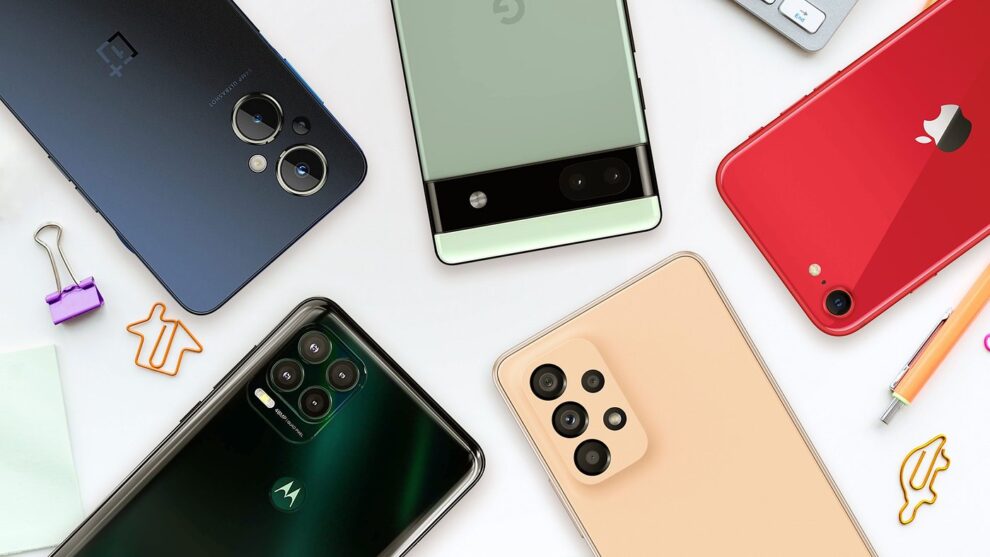For over a decade, smartphones have been integral parts of our lives—constant companions that connect us to information, entertainment, and each other. But with incremental innovation and feature fatigue setting in, are smartphones hitting a wall when it comes to evolution?
Signs that Smartphone Innovation is Slowing Down
There are a few signs indicating that smartphones may be facing stagnation:
Plateauing Design and Features
Recent years have seen increasingly incremental changes in smartphone design and capabilities. Cameras, screens, and processors continue to improve, but the overall user experience remains largely the same. Groundbreaking innovations seem fewer and farther between.
App and Feature Bloat
Bloated app stores full of copycat apps and rarely used features can lead to fatigue for users. It’s difficult to sift through the noise to find truly meaningful and transformative mobile experiences.
Ongoing Battery Issues
Despite progress in some areas, battery technology continues to struggle to keep up with the power demands of large screens, advanced processors, and constant connectivity. Users find themselves tethered to chargers throughout the day.
Privacy and Digital Dependence Concerns
In the wake of various data privacy scandals, awareness is growing about the potentially intrusive and addictive nature of smartphones. Many users desire greater control over their data and a healthier relationship with their mobile devices.
Glimpses of the Future: Where Mobile Goes Next
While smartphones may seem stagnated, the future of mobile contains intriguing glimpses of transformative potential just over the horizon:
Novel Form Factors and Interfaces
Foldable displays, rollable screens, and innovative form factors could redefine the user experience and push the boundaries of how we interact with our devices. Imagine a phone unfolding into a tablet, or projecting a holographic interface.
Smarter AI and Assistants
AI and machine learning will likely become even more integral to the mobile experience. Contextually-aware assistants, personalized recommendations, predictive actions and other AI capabilities could take our smartphones to the next level.
Immersive Augmented Reality
The ability to seamlessly overlay digital information onto the real world holds huge promise for areas like navigation, shopping, education, and gaming. AR could bring about the next major paradigm shift in mobile use cases.
Advanced Biometric Sensors
Integrating biometric sensors into phones to track health data could open up new possibilities for mobile health, fitness tracking, stress management and more personalized services.
Focus on Digital Wellbeing
There are growing calls for smartphones and apps to give users better ability to monitor and control their device usage and promote healthier digital habits. Expect mobile experiences to increasingly support digital detox and balanced technology use.
Potential Future Smartphone Scenarios
Rather than being defined as phones, the mobile devices of the future are likely to become integrated, contextually-aware assistants and companions embedded into multiple aspects of our lives. Potential scenarios include:
Ambient Computing Environments
Phones could fade into the background as smart surfaces, displays, and voice controls are woven into our living and working spaces to create integrated, anticipatory ambient computing environments.
AI Health and Wellness Coaches
Leveraging advancements in AI, future mobile companions could become personalized coaches that monitor your health, provide fitness guidance, and recommend lifestyle adjustments tailored specifically for you.
Holographic Gateways
Holographic technology could enable mobile devices to transform into gateways to interactive, immersive digital worlds for communication, gaming, education and entertainment.
The Future is Bright for Mobile
While smartphones may be hitting incremental innovation barriers, the overall mobile landscape continues to hold tremendous untapped potential. Changing user needs, new technologies like AI and AR, and a push towards healthier digital experiences are setting the stage for the next generation of transformative mobile computing.
The future lies not in phones, but integrated intelligent companions that learn and anticipate our needs while enabling us to connect to the world in richer, more balanced ways. More than mere stagnation looms over the mobile horizon—exciting new paradigms in ambient, assistive, and experiential computing await. The best is yet to come.
















Add Comment